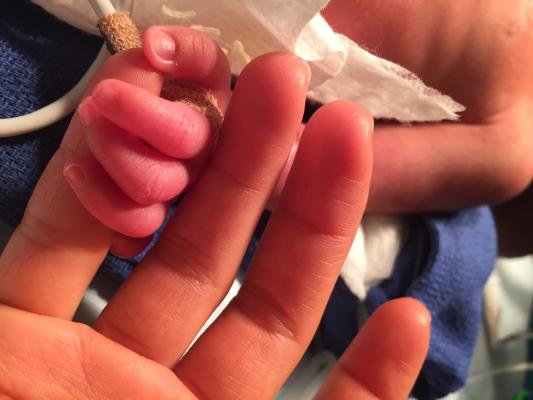
October 24, 2019 — Investigators at the University of Arizona Steele Children's Research Center are leading a statewide study as part of a national effort to conduct population-based surveillance of congenital heart defects across the life span, thanks to funding from the U.S. Centers for Disease Control and Prevention (CDC).
Jennifer Andrews, Ph.D., an assistant professor in the Department of Pediatrics and a member of the UA Steele Children's Research Center, has received $2.4 million through a five-year CDC cooperative agreement. Under the agreement, she will examine survival, healthcare utilization, other health conditions and outcomes over time for a variety of geographically, culturally and socioeconomically challenged subpopulations of Arizona children, adolescents and adults living with congenital heart defects.
In 2012, the CDC started expanding enhanced public health tracking of congenital heart defects to include children, adolescents and adults. This project seeks to better understand the survival, healthcare use and longer-term outcomes of individuals born with congenital heart defects across their life span. Understanding these health issues and needs at all ages is vital to improve the lives of individuals living with congenital heart disease, Andrews said.
An estimated 40,000 children are born with a heart problem each year, 25 percent of whom will have a critical heart condition requiring surgery during the first year of life. Treatment advances have changed the natural history of congenital heart disease; today, most infants born with a critical congenital heart condition are expected to live into adolescence and adulthood, but little is known about their outcomes.
"This project will establish a much-needed understanding of the scope of congenital heart defects, a complex set of conditions that afflict more than 2.4 million people in the United States," said UA President Robert C. Robbins, M.D. "Thanks to progress from collaborative pediatric cardiology and cardiothoracic surgery teams, such as the one at the UA College of Medicine – Tucson, young people born with complex heart conditions are more likely than ever to grow up to be adults with fulfilling lives. Yet more than half of all those who are afflicted with congenital heart disease are adults, and by monitoring and treating throughout the life span, we will better understand how to help individuals of all ages."
This cooperative agreement will expand the research program within the Division of Pediatric and Congenital Cardiology, led by Scott Klewer, M.D., professor of pediatrics, medicine and cellular and molecular medicine at the College of Medicine – Tucson. Andrews is director of research for the Congenital Heart Program. She and Klewer also are members of the UA Sarver Heart Center. Klewer holds the UA Sarver Heart Center Peggy M. Barrett Endowed Chair for Congenital Heart Disease in Adults.
For more information: www.peds.arizona.edu/steele


 January 05, 2026
January 05, 2026 









